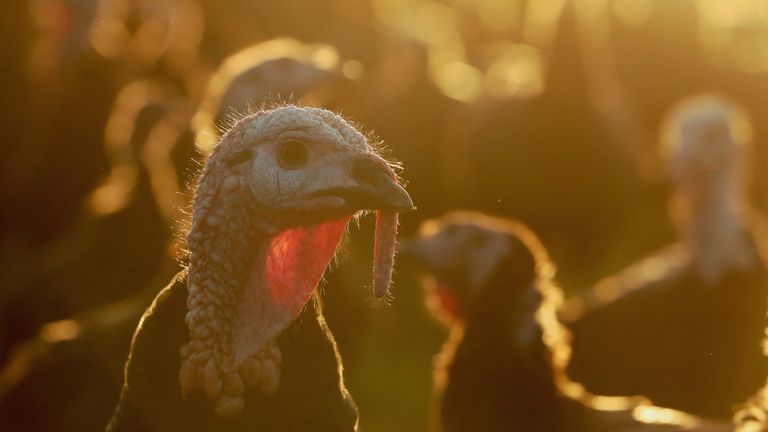Around 25,000 turkeys to be culled after ninth outbreak of bird flu in England
Around 25,000 turkeys will be culled after the ninth outbreak of bird fluamong captive birds in England this year, the government has said.
The H5N8 strain of avian influenza was confirmed in rearing turkeys at premises near King’s Lynn in west Norfolk on Saturday, according to the Department for Environment, Food and Rural Affairs (DEFRA).
All of the birds on the site will be humanely culled to prevent the spread of the highly infectious disease and protection and surveillance zones of 3km and 10km respectively have been put in place.
An investigation is under way to identify the likely source of the infection.
The ninth case comes shortly after avian flu was confirmed in rearing turkeys at premises near Attleborough, also in Norfolk, on Friday.
Up to 30,000 turkeys will be culled at this site and similar surveillance measures have been put in place.
Last Sunday, it was announced 10,000 turkeys were to be culled at a farm in North Yorkshire after an outbreak of bird flu.
All bird keepers must legally keep their flocks indoors from 14 December and follow biosecurity procedures under measures announced by the government to limit the disease’s spread.
The chief veterinary officers for England, Scotland and Wales agreed on the new measures to protect wild birds and poultry following cases of the “highly infectious” illness in both populations.
Christine Middlemiss, Sheila Voas and Christianne Glossop encouraged bird owners to use the coming days to prepare for the measures.
In a joint statement, the three chief vets concluded: “We have not taken this decision lightly, but it is the best way to protect your birds from this highly infectious disease.”
Restrictions were implemented to prevent the spread of the virus as England, Scotland and Wales were made an Avian Influenza Prevention Zone (AIPZ) last month.
This meant that poultry and captive bird keepers must take extra steps such as disinfecting equipment, vehicles and clothing, changing clothing and footwear before entering enclosures and limiting access to non-essential people.
The flu spreads between birds by direct contact or through contaminated bodily fluids, and can also be spread by contaminated feed, water, or by dirty clothing and footwear.
Public Health England said the risk to the public from the virus is “very low”, and food standards agencies have said it does not affect the consumption of poultry products.
Source: Read Full Article



